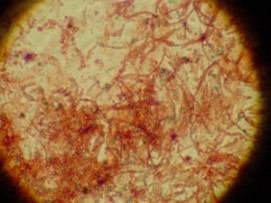
MBTA to Spread Dead Bacteria on Red Line in Bio-Terror Test
Chris Helms
n order to test sensors that detect biological agents that terror groups could release into subway systems, Homeland Security and the T plan to release dead bacteria at three Red Line stops during off-hours.
The MBTA and Homeland Security plan to release dead bacteria into three Red Line stations this summer to test bio-terror sensors.
The agencies held a public meeting about the plan Wednesday. The bacteria, bacillus subtilis, is not infectious even in its live form, according to government documents. The bacteria is used in farming, as a food supplement for humans and livestock and as an ingredient in organic dog food, according to a government Q&A, attached as a PDF.

The tests will be done in Cambridge and Somerville at the Davis, Harvard Square and Porter Stations.
According to WCVB, some residents who attended Wednesday's public hearing at the Cambridge YMCA expressed concern about the plan. They also criticized that exact dates for the tests have not been made known.
The bacteria would be released when the stations are closed to the public. The government had rejected a plan to release live bacteria at rush hour, to simulate more closely how an actual attack would likely take place. However, that option was rejected because of the possible danger to "immune-compromised riders." For details, please see a second attached PDF with the government's analysis.
Biological attacks on subway systems have long been a concern. In 1995 a Japanese cult released nerve gas on the Tokyo subway system. The attack killed 12 people and injured 5,500.
